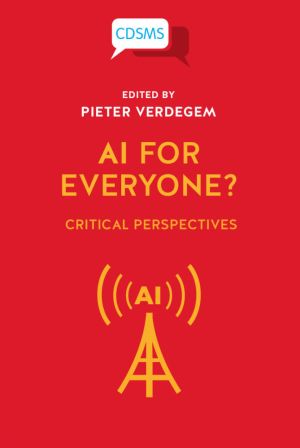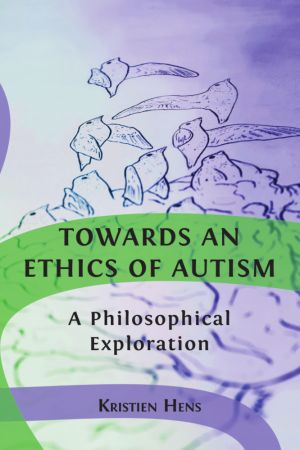Towards an Ethic of Autism
A Philosophical Exploration
by Kristien Hens
DescriptionTable of ContentsDetailsHashtagsReport an issue
Towards an Ethics of Autism is an exploration of this question and many more. In this thoughtful, wide-ranging book, Kristien Hens examines a number of perspectives on autism, including psychiatric, biological, and philosophical, to consider different ways of thinking about autism, as well as its meanings to those who experience it, those who diagnose it, and those who research it. Hens delves into the history of autism and its roots in the work of Leo Kanner and Hans Asperger to inform a contemporary ethical analysis of the models we use to understand autism today. She explores the various impacts of a diagnosis on autistic people and their families, the relevance of disability studies, the need to include autistic people fully in discussions about (and research on) autism, and the significance of epigenetics to future work on autism.
Hens weaves together a variety of perspectives that guide the reader in their own ethical reflections about autism. Rich, accessible, and multi-layered, this is essential reading for philosophers, educational scientists, and psychologists who are interested in philosophical-ethical questions related to autism, but it also has much to offer to teachers, allied health professionals, and autistic people themselves. 






Book Description
What does it mean to say that someone is autistic?Towards an Ethics of Autism is an exploration of this question and many more. In this thoughtful, wide-ranging book, Kristien Hens examines a number of perspectives on autism, including psychiatric, biological, and philosophical, to consider different ways of thinking about autism, as well as its meanings to those who experience it, those who diagnose it, and those who research it. Hens delves into the history of autism and its roots in the work of Leo Kanner and Hans Asperger to inform a contemporary ethical analysis of the models we use to understand autism today. She explores the various impacts of a diagnosis on autistic people and their families, the relevance of disability studies, the need to include autistic people fully in discussions about (and research on) autism, and the significance of epigenetics to future work on autism.
Hens weaves together a variety of perspectives that guide the reader in their own ethical reflections about autism. Rich, accessible, and multi-layered, this is essential reading for philosophers, educational scientists, and psychologists who are interested in philosophical-ethical questions related to autism, but it also has much to offer to teachers, allied health professionals, and autistic people themselves.
This open book is licensed under a Creative Commons License (CC BY). You can download Towards an Ethic of Autism ebook for free in PDF format (10.3 MB).
Table of Contents
PART I
DIMENSIONS OF AUTISM
Chapter 1
The Origins of Autism
Chapter 2
The Nature of Psychiatric Diagnoses
Chapter 3
Cognitive Explanations of Autism: Beyond Theory of Mind
Chapter 4
Sociological and Historical Explanations of Autism
PART II
EXPERIENCES OF AUTISM
Chapter 5
Difference and Disability
Chapter 6
Epistemic Injustice and Language
Chapter 7
Experiences of Autism
Chapter 8
Interlude: Autism and Time
PART III
DYNAMICS OF AUTISM
Chapter 9
Labels and Looping Effects
Chapter 10
Dynamic Approaches
Chapter 11
Autism and Genetics
Book Details
Title
Towards an Ethic of Autism
Subject
Philosophy
Publisher
Open Book Publishers
Published
2021
Pages
208
Edition
1
Language
English
ISBN13
9781800642300
ISBN10
180064230X
ISBN13 Digital
9781800642324
ISBN10 Digital
1800642326
PDF Size
10.3 MB
License

Related Books

The LNCS 11427 and 11428 proceedings set constitutes the proceedings of the 25th International Conference on Tools and Algorithms for the Construction and Analysis of Systems, TACAS 2019, which took place in Prague, Czech Republic, in April 2019, held as part of the European Joint Conferences on Theory and Practice of Software, ETAPS 2019.
The tot...

This volume offers extensive information on preventive and infection surveillance procedures, routines and policies adapted to the optimal infection control level needed to tackle today's microbes in hospital practice. It especially focuses on preventive measures for serious hospital infections. Each chapter includes a practical section that a...

This book constitutes the proceedings of the 21st International Conference on Foundations of Software Science and Computational Structures, FOSSACS 2018, which took place in Thessaloniki, Greece, in April 2018, held as part of the European Joint Conference on Theory and Practice of Software, ETAPS 2018.The 31 papers presented in this volume were ca...

This book provides both a broad perspective and a focused examination of cow care as a subject of widespread ethical concern in India, and increasingly in other parts of the world. In the face of what has persisted as a highly charged political issue over cow protection in India, intellectual space must be made to bring the wealth of Indian traditi...

We are entering a new era of technological determinism and solutionism in which governments and business actors are seeking data-driven change, assuming that Artificial Intelligence is now inevitable and ubiquitous. But we have not even started asking the right questions, let alone developed an understanding of the consequences. Urgently needed is ...

Quoting is all around us. But do we really know what it means? How do people actually quote today, and how did our present systems come about? This book brings together a down-to-earth account of contemporary quoting with an examination of the comparative and historical background that lies behind it and the characteristic way that quoting links pa...

